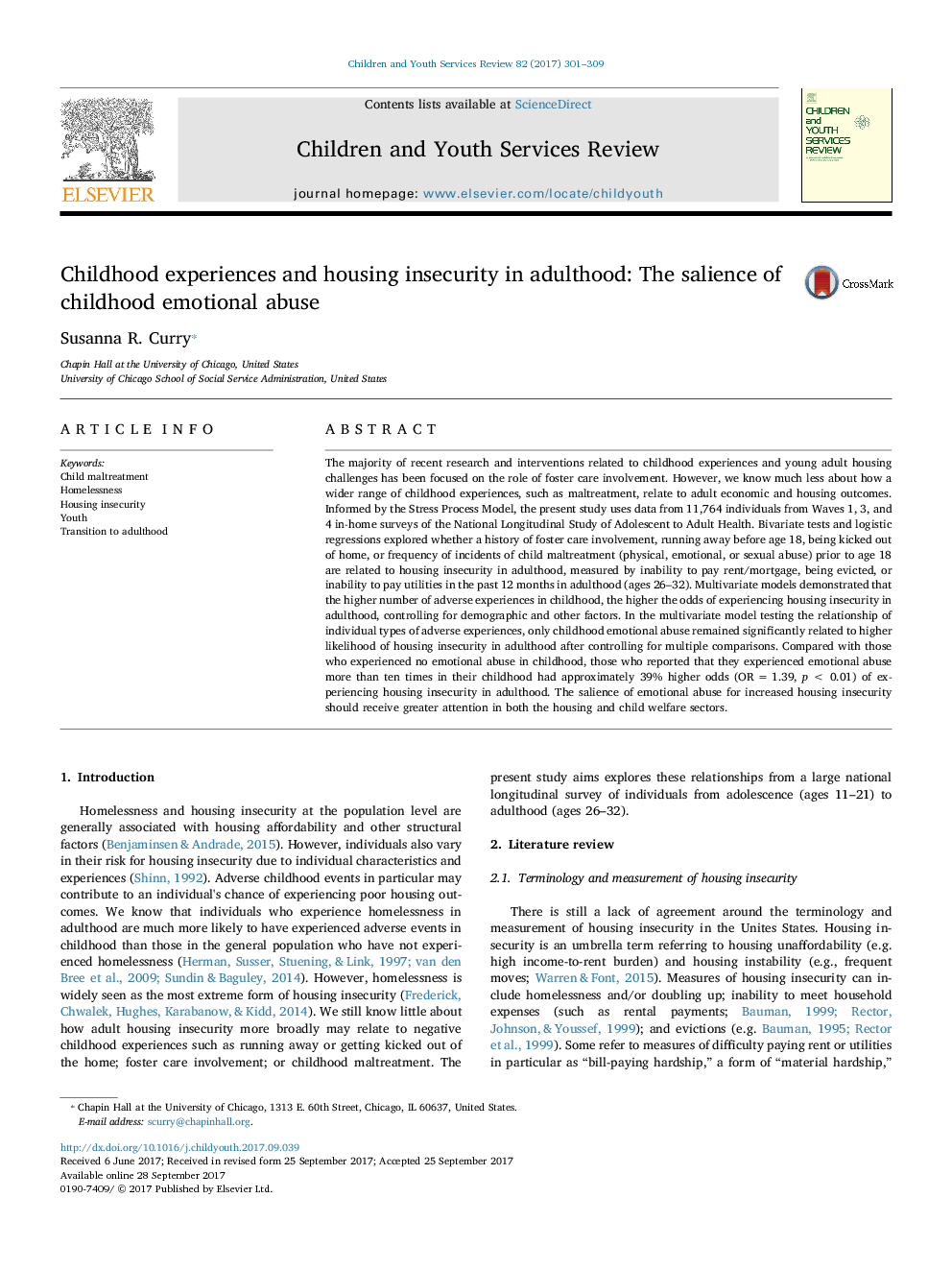ترجمه فارسی عنوان مقاله
تجربیات دوران کودکی و ناامنی مسکن در بزرگسالی: اهمیت سوء رفتار عاطفی دوران کودکی
عنوان انگلیسی
Childhood experiences and housing insecurity in adulthood: The salience of childhood emotional abuse
| کد مقاله | سال انتشار | تعداد صفحات مقاله انگلیسی |
|---|---|---|
| 131748 | 2017 | 9 صفحه PDF |
منبع

Publisher : Elsevier - Science Direct (الزویر - ساینس دایرکت)
Journal : Children and Youth Services Review, Volume 82, November 2017, Pages 301-309
ترجمه کلمات کلیدی
بدرفتاری با کودک، بی خانمانی، ناامنی مسکن، جوانان، گذار به بزرگسالی،
کلمات کلیدی انگلیسی
Child maltreatment; Homelessness; Housing insecurity; Youth; Transition to adulthood;

